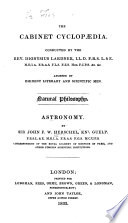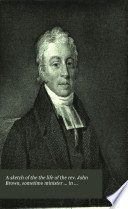 | New Church gen. confer - 1874 - 608 pages
...by analysing the motions of the planets on mechanical principles, that every particle of ponderable matter in the universe attracts every other particle with a force varying inversely as the square of the distance, astronomers have been ftble, in virtue of that one law of... | |
 | sir John Frederick W. Herschel (1st bart.) - 1833 - 500 pages
...instance, and provisionally, his law of universal gravitation, which may be thus abstractly stated : — " Every particle of matter in the universe attracts every other particle, with a force directly proportioned to the mass of the attracting particle, and inversely to the square of the distance... | |
 | Sir John Frederick William Herschel - Astronomy - 1833 - 444 pages
...and provisidwally, his law of universal gravitation, which may be tliijis abstractly stated : — " Every particle of matter in the' universe attracts every other particle, with a force directly proportioned to the mass of the attracting particle, and inversely to the square of the distance... | |
 | John Henry Pratt - Celestial mechanics - 1836 - 672 pages
...highly probable that the particles of the Sun attract the particles of the planets, and vice versa, with a force varying directly as the mass of the attracting particle and inversely as the square of the distance. 260. These consequences to which we have been led by Kepler's Laws are equally satisfied... | |
 | Thomas Webster - Physics - 1837 - 512 pages
...surface. For this purpose, he reasoned on his law of universal gravitation, which may be thus stated; ' Every particle of matter in the universe attracts every other particle, with a force varying inversely as the square of the distance.' Reasoning on this law, he calculated, from the effect which... | |
 | Periodicals - 1839 - 272 pages
...from gravitation. The great Newton discovered and established the law of universal gravitation, " that every particle of matter in the universe attracts every other particle, with a force varying inversely as the square of the distance :" by which is meant, that if a body be attracted by the earth... | |
 | Thomas Lockerby - 1839 - 566 pages
...matter that the earth consists of. Gravity is a real power, of whose agency we have daily experience. " Every particle of matter in the universe attracts every other particle, with a force directly proportioned to the mass of the attracting particle, and inversely to the square of the distance... | |
 | John Henry Pratt - Architecture - 1842 - 674 pages
...highly probable that the particles of the Sun attract the particles of the planets, and vice versa, with a force varying directly as the mass of the attracting particle and inversely as the square of the distance. 260. These consequences to which we have been led by Kepler's Laws are equally satisfied... | |
 | T H. Howe - 1842 - 458 pages
...that case, the general law applies in its strict wording." — Sir John Herschefs Astronomy p. 237. " Every particle of matter in the universe attracts every other particle with a force directly proportioned to the mas of the attracting particle, and inversely to the square of the distance... | |
 | 1905 - 864 pages
...constitution; this being, of course, only a particular case of Newton's law of gravitation, which tells us that every particle of matter in the universe attracts every other particle with a force which depends on their masses and on the distances which separate them; the attraction being proportionately... | |
| |